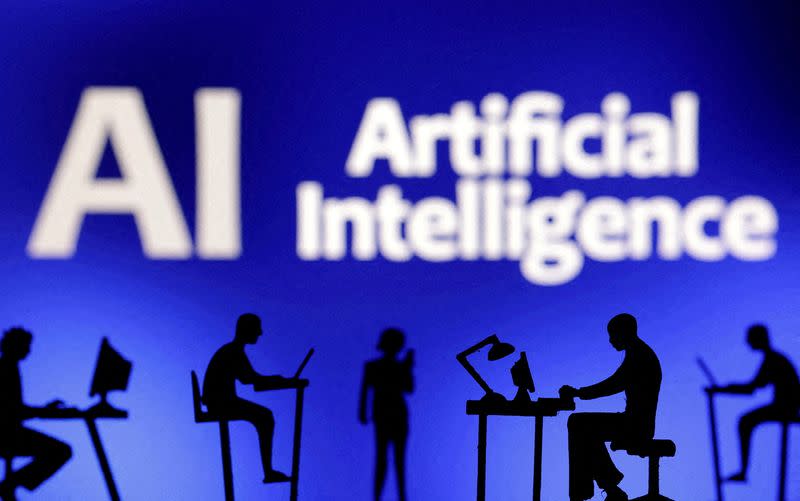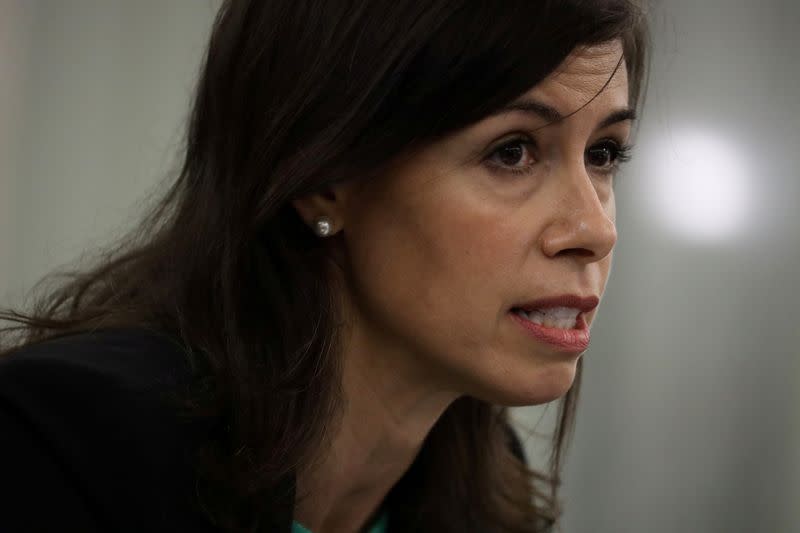FCC chair asks telecoms to detail efforts to block fraudulent AI political robocalls
By David Shepardson
(Reuters) -The chair of the Federal Communications Commission asked AT&T, Verizon, Comcast and other cable and telecom carriers to detail efforts to crack down on fraudulent political robocalls that are generated by AI, the agency said Thursday.
Last month Steven Kramer, a Louisiana Democratic political consultant, was indicted over a fake robocall imitating U.S. President Joe Biden seeking to dissuade people from voting for him in New Hampshire's Democratic primary election.
The FCC in May proposed to fine Kramer $6 million over the robocalls it said used an AI-generated deepfake audio recording of Biden’s cloned voice, saying its rules prohibit transmission of inaccurate caller ID information. Kramer has pleaded not guilty.
The FCC also proposed to fine Lingo Telecom $2 million for allegedly transmitting the robocalls.
"We know that AI technologies will make it cheap and easy to flood our networks with deepfakes used to mislead and betray trust," FCC Chair Jessica Rosenworcel wrote to the companies in a letter first reported by Reuters. "It is especially chilling to see AI voice-cloning used to impersonate candidates during elections. As AI tools become more accessible to bad actors and scammers, we need to do everything we can to keep this junk off our network."
There is growing concern in Washington that AI-generated content could mislead voters in the November presidential and congressional elections. Some senators want to pass legislation before November that would address AI threats to election integrity.
Rosenworcel asked the carriers -- including T-Mobile, DISH Network, Charter Communications, Cox and Frontier -- to answer questions by July 15, including whether they have dedicated human or technological resources to identify generative AI voices, and what other steps the companies have taken to address unauthorized AI messaging campaigns during elections.
Charter Communications said it has long taken an aggressive approach to addressing robocalls.
"We'll continue working alongside the FCC and our industry partners to protect our customers as this risk continues to evolve," the company said.
The other carriers declined to comment or referred questions to industry trade group USTelecom.
"When it comes to fighting scams and spam calls, our partnership with the FCC is rock-solid," the group's CEO Jonathan Spalter said. "America’s communications providers are all in on putting an end to illegal robocalls and going after any AI-based scam calls that hit consumers."
Rosenworcel separately has proposed the FCC require broadcast radio and television political advertisements to disclose whether content is generated by AI.
(Reporting by David Shepardson; Editing by Chizu Nomiyama and Rod Nickel)

 Yahoo Finance
Yahoo Finance 

